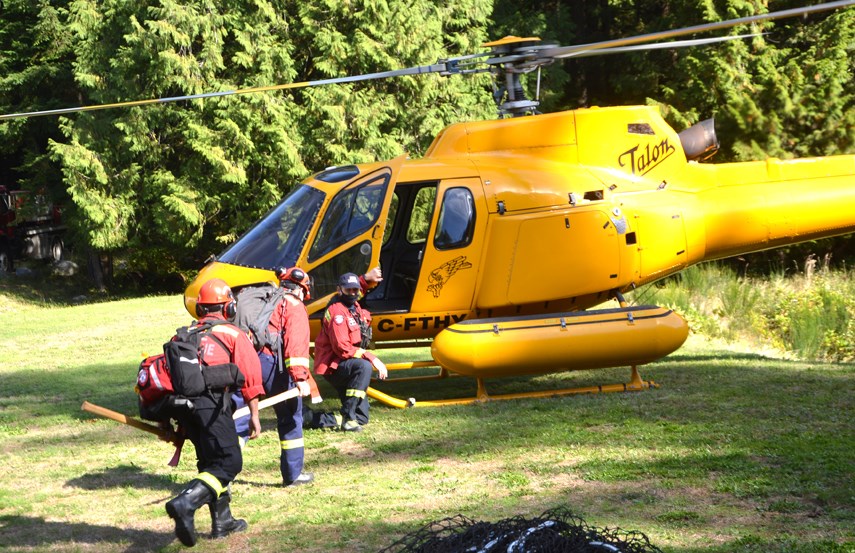A wildfire in the North Shore backcountry. It’s the kind of thing we dread but our local fire crews are preparing for nonetheless.
They spent much of the day Thursday running through a simulation of what would happen in the event of two fires burning simultaneously on both ends of Lost Lake (also known as Rolf Lake) deep in the backcountry, under extreme fire danger ratings – similar conditions to what most of B.C. was facing in July and August.
Any fire in the watershed would require an all-hands-on-deck response, so the exercise brought together crews from North Shore fire departments, BC Wildfire Service, Metro Vancouver Watershed firefighters and Talon Helicopters.
“At the end of the day, regardless of how you knock it down, whether it's bucketing or it's tanker drops, you still have to put boots on the ground and get people in there to make sure that those fires are completely under control,” said District of North Vancouver fire chief Brian Hutchinson.
The exercise ran through everything from how to safely get buckled into a helicopter and learning to attach massive slings of gear to the bottom, to setting up pumps and running hoses in the wilderness. The simulation even included smoke grenades.
“It’s different from what we normally do in the urban environment, so that was a huge step for our personnel – being able to operate in that environment and be reliant on basically what they have on the back. Usually, we've got a big red fire truck close, in proximity,” Hutchinson said. “It is one of the only programs of this nature in an urban fire department in British Columbia to have stood up and trained up an initial attack crew for remote wildfire operations.”
Typically, fires in areas that remote are sparked by lightning. But humans have been known to ignite them with smoking or unpermitted campfires.
If a wildfire were to start in the watershed, Hutchinson said the key strategy would be to stop it before it reaches the urban interface [where structures meet the wilderness] but the drinking water for hundreds of thousands of people hangs on their success.
“We have two of the three primary watersheds for all of Metro Vancouver, and fires can devastate watersheds. Watersheds are extremely difficult to repair,” Hutchinson said.
When the simulation wrapped in the afternoon, Hutchinson said he was pleased with what he saw.
“We achieved all of our objectives,” he said. “I'm very, very happy with where we are at. …This is really taking it to the next level.”
Exercise is complete! Thank you to everyone for participating in such a complex scenario!!! @taloncopters @MetroVancouver @BCGovFireInfo @NVanDistrict pic.twitter.com/rdSC3ESrFj
— DNV Fire Rescue Services (@DNVFRS) September 16, 2021


